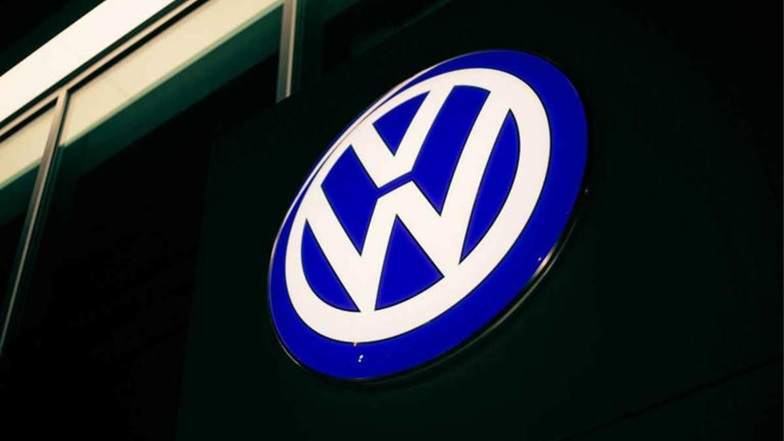Volkswagen (VW) announced what it is calling a “Christmas miracle” after reaching a pivotal agreement to reshape its German operations. The deal follows weeks of intense negotiations, two major strikes involving 100,000 workers, and significant pressure to balance cost-cutting with job security. While no factories will close immediately, VW has outlined plans for drastic workforce reductions and capacity adjustments as part of its broader restructuring strategy.

What the Deal Includes
After 70 hours of negotiations and five rounds of talks, Volkswagen and German union leaders reached a compromise to avoid immediate closures, layoffs, or wage cuts. Here’s what the agreement entails:
- Factory Operations Secured:
- VW will keep all 10 of its German factories open, at least until 2030.
- Job security agreements have been reinstated, ensuring no abrupt disruptions for workers.
- Workforce Adjustments:
- Despite securing factory operations, VW plans to cut over 35,000 jobs in Germany by 2030.
- The job cuts will be implemented in a “socially responsible manner,” focusing on retirements and voluntary departures.
- Capacity Reductions:
- Production at five factories will be scaled back, resulting in a reduction of 700,000 vehicles annually.
- Compromises by Workers:
- Employees have agreed to forgo certain bonuses.
- Permanent employment opportunities for trainees will be reduced.
- Management Pay Cuts:
- Approximately 4,000 VW managers will face bonus reductions equivalent to 10% of their annual income starting next year.
- These cuts will continue, albeit at smaller rates, through the end of the decade.
- Union leaders are pushing for top executives, including CEO Oliver Blume, to take similar pay reductions, though this has not yet been confirmed.
Why Volkswagen Is Restructuring
Volkswagen’s restructuring efforts are driven by a need to reduce costs and remain competitive in the rapidly changing automotive industry. Key challenges include:
- Cost-Saving Goals:
VW aims to save $4.2 billion annually in the medium term, streamlining production and development cycles to reduce inefficiencies. - Fierce Competition in EVs:
VW faces increasing competition from Chinese automakers like BYD, which are entering the European market with cost-competitive electric vehicles (EVs). - Declining Sales in China:
Once a core market for Volkswagen, China has seen a steep decline in VW’s sales, intensifying the need for strategic adjustments.
Old vs. New Volkswagen Strategy
| Aspect | Old Strategy | New Strategy |
|---|---|---|
| Factory Operations | Stable, with full capacity utilization | Capacity reductions at five factories |
| Job Security | Long-term employment commitments | Over 35,000 job cuts by 2030 |
| Manager Bonuses | Standard bonuses across the board | 10% reductions for 4,000 managers |
| Development Cycles | Longer, less efficient | Streamlined to shorten project timelines |
| EV Retail Model | Traditional dealership model | Rethinking to compete with emerging EV brands |
| Focus Market | Heavy reliance on China | Diversifying to address European and global markets |
The Bigger Picture: Volkswagen’s Transition
Volkswagen is undergoing a radical transformation to adapt to the evolving automotive landscape, particularly the shift toward electric vehicles. The company is focusing on:
- Streamlining Processes:
VW is working to shave months off its development cycles, which will allow the automaker to bring products to market faster. - EV Strategy Revamp:
Facing challenges from competitors like BYD, VW is rethinking its approach to electric vehicle sales, exploring new retail models to stay relevant. - Focus on Sustainability:
As the automotive industry shifts towards sustainability, Volkswagen’s ability to produce efficient, affordable EVs will be key to its long-term success.
Challenges Ahead
Despite the “Christmas miracle” deal, Volkswagen faces significant hurdles:
- Balancing Costs and Morale:
While factory closures have been avoided, the planned job cuts and bonus reductions may affect employee morale and union relations. - Maintaining Market Share:
With declining sales in China and increasing competition in Europe, VW must find ways to maintain and grow its market share. - Adapting to EV Demand:
As consumers increasingly favor electric vehicles, VW needs to deliver competitive models to meet this demand.
Volkswagen’s agreement with union leaders marks an important step in securing its operations while laying the groundwork for significant restructuring. The decision to keep factories open through 2030 and implement socially responsible job cuts reflects a delicate balancing act between cost-saving measures and workforce stability.
As the automotive industry undergoes a seismic shift toward electric vehicles, Volkswagen’s ability to adapt will determine its future. The stakes are high, but with focused efforts on streamlining operations, rethinking its EV strategy, and addressing competitive pressures, VW is positioning itself to navigate these challenges while striving to maintain its legacy as an industry leader.
Related Post
